How I Scored High on the MCAT and Got Into My Dream Med School
Congratulations on your acceptance to medical school! We know that getting into med school can be challenging, but with hard work and dedication, anything is possible. In this blog post, we’ll share some tips and strategies for acing the MCAT and scoring high on your application. Let’s get started!
Introduction: What is the MCAT and Why Does it Matter?
The Medical College Admission Test (MCAT) is a standardized test used by medical schools to assess an applicant’s knowledge of science concepts, critical thinking skills, problem-solving abilities, and writing skills. The exam consists of four sections: Biological and Biochemical Foundations of Living Systems; Chemical and Physical Foundations of Living Systems; Psychological, Social, and Biological Foundations of Behavior; and Critical Analysis and Reasoning Skills. Scoring high on the MCAT is essential because it plays a significant role in determining whether you will be accepted into your dream med school.
Preparing for the MCAT: A Study Plan that Works
To prepare for the MCAT, start by creating a study plan that works best for you. This could include setting aside specific times each day or week to review materials, taking practice tests, attending prep courses, or working with a tutor. It’s also important to create a comfortable studying environment that allows you to focus and stay motivated. Some students prefer studying alone while others find group study sessions more beneficial. Find what works best for you and stick to it.
Tips for Acing the MCAT’s Sections
Here are some tips for acing each section of the MCAT:
1. Biological and Biochemical Foundations of Living Systems: Focus on understanding key concepts rather than memorizing facts. Use diagrams and illustrations to visualize complex processes. Practice using molecular structures to predict chemical properties.
2. Chemical and Physical Foundations of Living Systems: Memorize key equations and formulas, especially those related to thermodynamics and kinetics. Understand how to apply these principles to biological systems. Practice solving problems involving pH, buffers, and electrolytes.
3. Psychological, Social, and Biological Foundations of Behavior: Read widely to gain exposure to different psychological theories and research methods. Practice applying these concepts to real-world scenarios. Pay attention to ethical issues involved in conducting research.
4. Critical Analysis and Reasoning Skills: Develop strong reading comprehension skills and learn to identify assumptions, arguments, and evidence in written passages. Practice analyzing graphs and charts to draw conclusions. Learn to evaluate arguments critically and make logical inferences.
How to Write a Strong Personal Statement for Medical School Applications
Your personal statement is a crucial component of your medical school application. It provides admissions committees with insights into who you are as a person beyond your academic achievements. Here are some tips for writing a strong personal statement:
1. Start early and revise often. Don’t wait until the last minute to write your personal statement. Give yourself plenty of time to brainstorm ideas, draft multiple versions, and seek feedback from trusted sources.
2. Tell a story. Your personal statement should tell a compelling story about who you are, where you come from, and why you want to become a doctor. Use vivid language and descriptive details to paint a picture for readers.
3. Show, don’t tell. Rather than simply stating your interests and accomplishments, use examples to demonstrate them. For example, instead of saying “I am passionate about helping underserved communities,” describe a volunteer experience you had at a free clinic.
4. Keep it concise and focused. Your personal statement should be no longer than two pages and should cover only the most relevant information. Stay focused on your main theme or message and avoid going off on tangents.
Interview Tips for Medical School Admissions
If you’ve made it to the interview stage of the med school admissions process, congratulations! Here are some tips for acing your interviews:
1. Research the school beforehand. Familiarize yourself with the school’s mission, values, and curriculum so you can speak knowledgeably about why you want to attend.
2. Prepare answers to common interview questions. You may be asked about your reasons for pursuing medicine, your strengths and weaknesses, or your experiences working with diverse populations. Practice answering these types of questions with a friend or family member.

3. Dress professionally and arrive early. First impressions matter, so dress appropriately in business attire and arrive at least 15 minutes early.
4. Be authentic and engaging. During the interview, try to relax and be yourself. Engage with your interviewers by asking thoughtful questions and maintaining eye contact. Show enthusiasm for learning and serving others.
Financing Your Med School Dreams: Scholarships, Loans, and Other Options
Paying for med school can be daunting, but there are many options available to help finance your education. Here are some tips for financing your med school dreams:
1. Look for scholarships and grants. Many organizations offer scholarships specifically for aspiring doctors. Check with local hospitals, community foundations, and professional associations to see if they have any opportunities available.
2. Consider federal loans. Federal student loans typically have lower interest rates and better repayment terms than private loans. Explore options such as Direct Unsubsidized Loans, Grad PLUS Loans, and Perkins Loans.
3. Apply for private scholarships. Private scholarships can provide additional funding beyond what federal loans offer. Search online for reputable scholarship databases and apply for ones that match your qualifications.
4. Consider military service. Joining the armed forces can provide financial assistance for med school in exchange for a commitment to serve as a physician after graduation.






